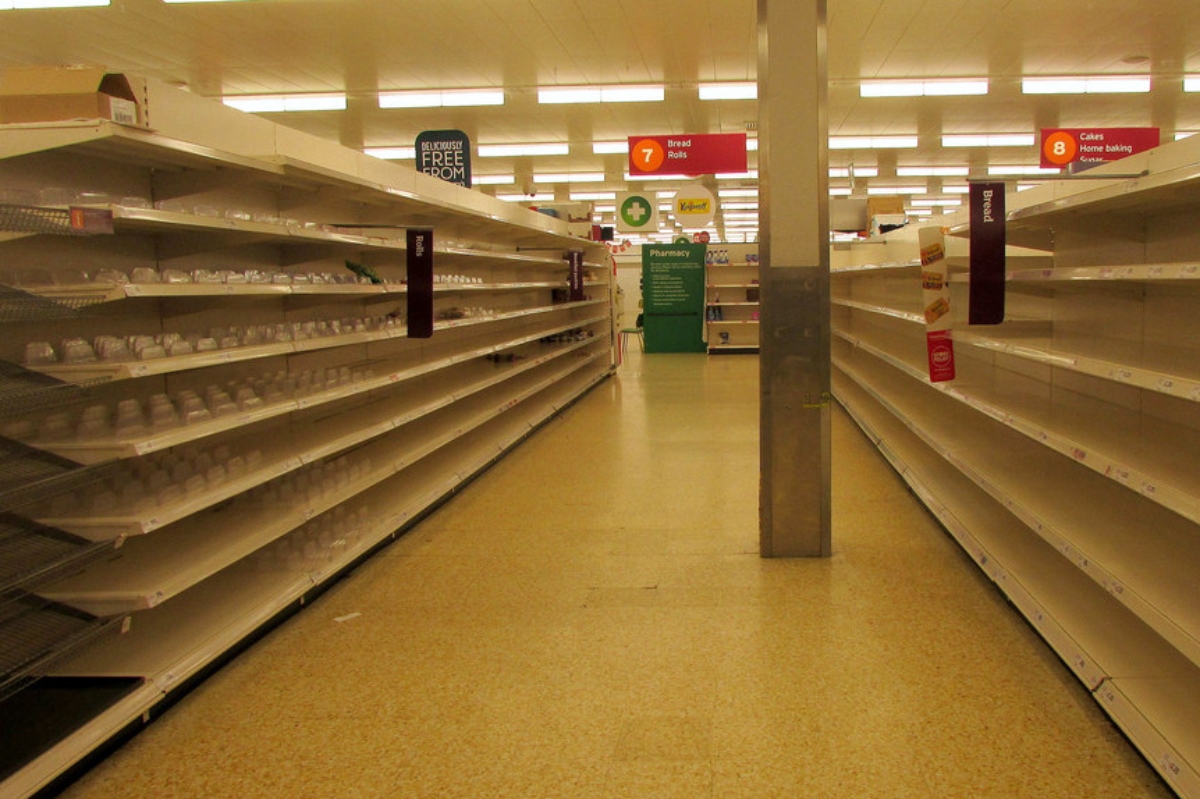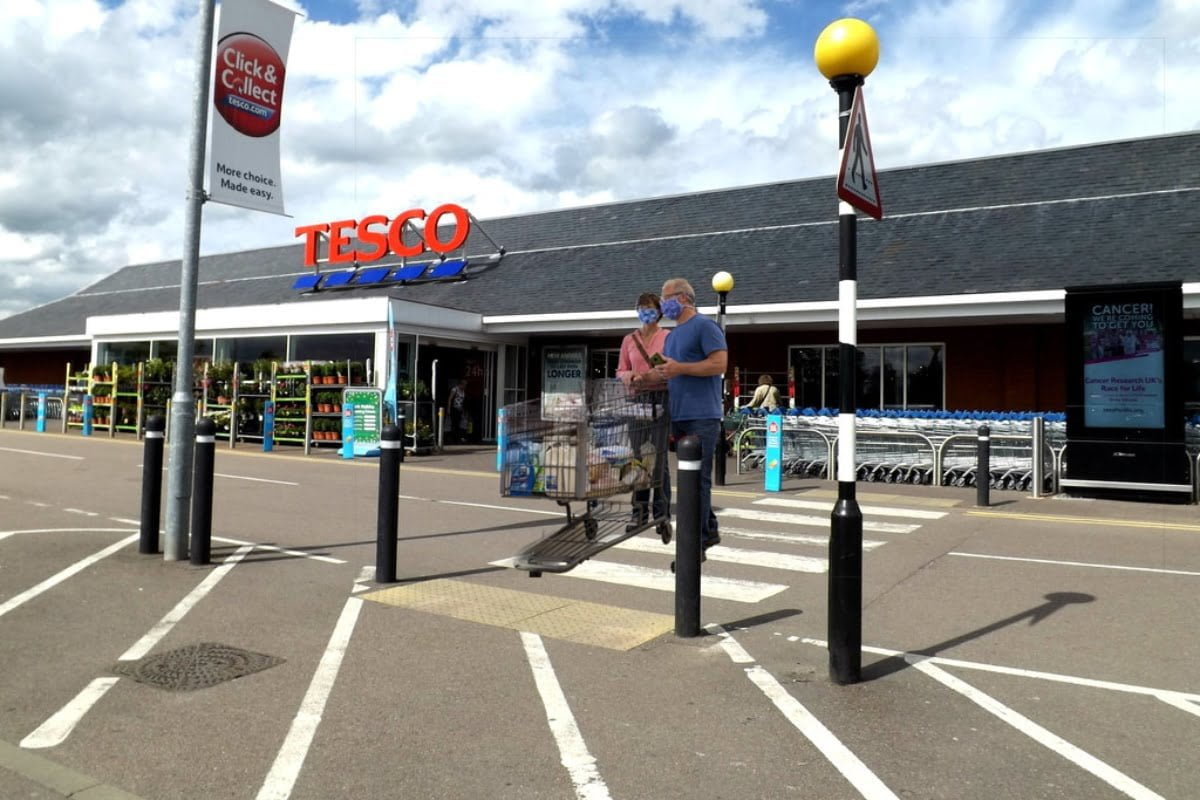Whilst many businesses in the UK are facing ruin, supermarkets like Tesco are flourishing, taking tax-breaks and paying out enormous dividends to shareholders. Workers, meanwhile, are being put at risk on a daily basis.
As a result of the deep crisis triggered by the coronavirus pandemic, thousands of businesses are on the brink of collapse.
As demand dries up, the market is oversaturated. Non-essential businesses – particularly small and medium-sized businesses – are unable to maintain profits. It is the workers who are being made to pay for this, through lay-offs and slashed hours.
However, not all businesses are struggling in this period. As people are no longer able to eat out or go for drinks down the pub, supermarkets have seen a spike in demand – and in their profits.
Last month, for example, was the busiest month on record for supermarkets, with sales amounting to £10.8bn. On top of this, prices have crept up, with special-offer savings being removed with the excuse that this will reduce demand.
Meanwhile, tens of thousands of workers – many of whom have no other way of making ends meet – have been drafted in to meet this increased demand.
Major supermarket chains are raking in enormous profits whilst simultaneously being awarded tax-breaks by the government. Tesco, for example, received a tax-break worth £585m. Shortly afterwards, the company rewarded its shareholders with £635m in dividends. So far this year they have paid out a total of £900m in dividends.
. @DominicRaab why should @Tesco and CRH receive tax payers money and then be able to pay out millions in dividends while small limited companies get no help https://t.co/QGVk4afjaL
— Limited options (@LimitedOptions3) April 29, 2020
The chairman of Tesco, John Allan, attempted to justify this action. He claimed that: “The right thing to do in these circumstances was to honour the pledge made to shareholders, particularly given that we have already made considerable efforts to look after our staff.”
Despite widespread calls for the company to repay the tax relief granted by the government, Tesco are refusing to budge.
The government is pouring money into the pockets of the rich, whilst doing nothing for the workers. This outrage is only made worse by the fact that – whilst shareholders are swimming in cash – workers placing themselves at risk of infection every day are not being given adequate protection, despite Allan’s claims to the contrary.
Workers and customers at risk
Tesco is the largest private sector employer in the largest employment sector in the country. It employs just under 350,000 people in the UK, with operations abroad as well.
Designated as key workers by the government, Tesco employees have been placed in a hazardous working environment. Supermarkets are places where people are particularly prone to be infected by the virus, due to the large volume of workers and customers present.
However, in most cases, personal protective equipment (PPE) has either been very slow to arrive, or it has not arrived at all. There have been firsthand reports of workers having to buy protective equipment for themselves and their colleagues on eBay and elsewhere. In response to the negligence of their employers, workers are having to take their safety into their own hands.
Additionally, there are other health and safety concerns that are being frequently overlooked at this time.
One health and safety representative working for Tesco told Socialist Appeal that “management doesn’t care about the safety or wellbeing of its staff and the customers”.
“They have a sickening ‘me first’ attitude to management that comes to them from more senior levels of management, what matters to them is if the profits of the store are being met and every other concern is therefore generally ignored.”
They claimed, for example, that due to capacity issues, food was “not being stored in the right places”. This meant that frozen food was “being stored in the fridge and unfrozen and refrozen over and over again”.
“There are plenty more examples of the company breaking health & safety laws, and not doing much or anything at all when it is pointed out to them.”
Nationalise the supermarkets
 The crisis sparked by the pandemic has also brought about a crisis of food poverty, with an estimated 16% of people in the UK facing food insecurity. Demand for food banks, which was already extremely high before the current crisis, has skyrocketed.
The crisis sparked by the pandemic has also brought about a crisis of food poverty, with an estimated 16% of people in the UK facing food insecurity. Demand for food banks, which was already extremely high before the current crisis, has skyrocketed.
Dedicated volunteers in mutual aid groups are organising to provide welcome relief to families in desperate need. But this is ultimately a case of treating the symptoms rather than fighting the disease.
Ultimately, it is a consequence of the private ownership of these industries – and of production for profit and not need – that millions of people are being left without adequate access to food. And it is the same profit system that puts supermarket workers in the firing line on a daily basis.
In order to fight both the widespread food insecurity and the dangerous working conditions of supermarket staff, the supermarkets – and the enormous profits they are making – must be taken into public ownership, as part of a socialist plan of production.
We need democratic workers’ control in order to put the necessary measures in place to protect workers, and to distribute food to all those in need.






